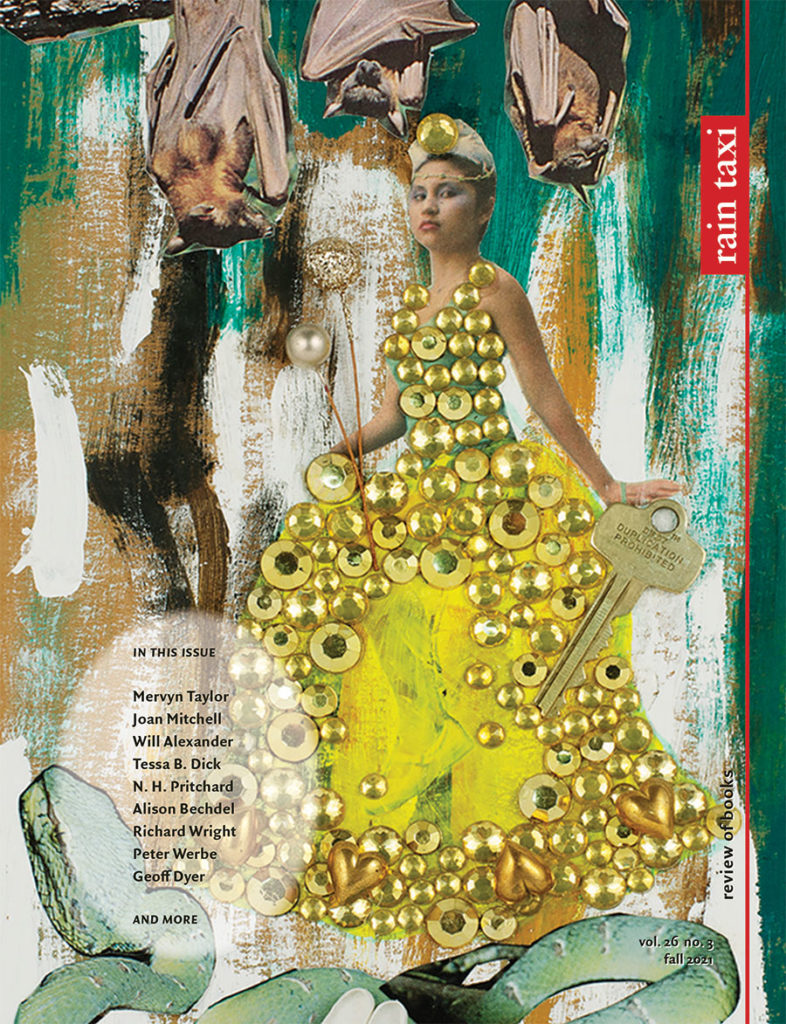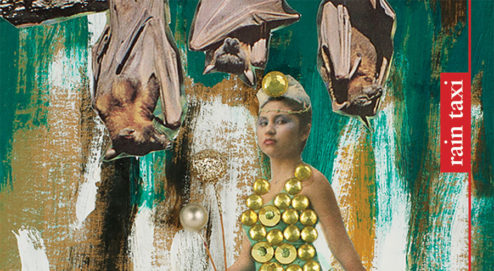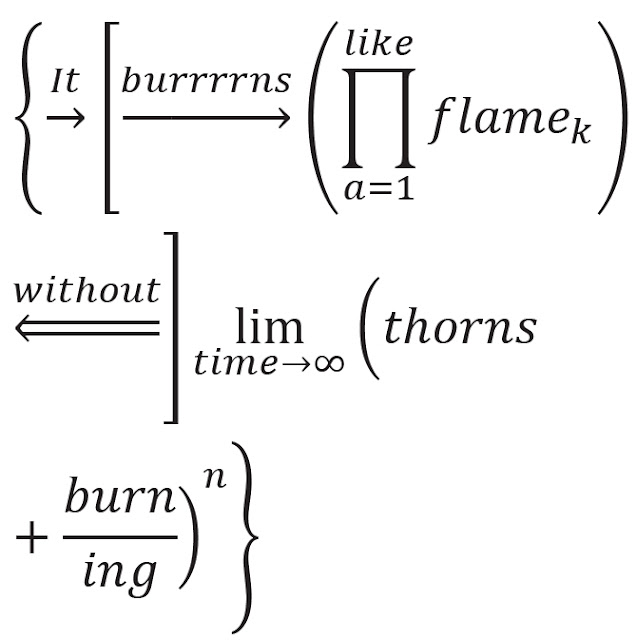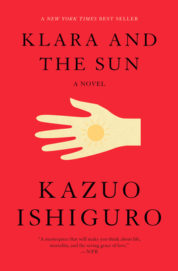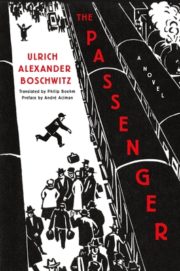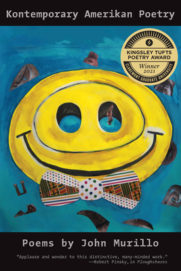
photo by Sara Upshur
by Allan Vorda
Kim Echlin was born in Burlington, Ontario, where her high school teachers noticed her writing talent early on. She has received degrees from McGill University and Paris-Sorbonne University, as well as her PhD in English literature from York University; her thesis was on the translation of Ojibwe Nanabush myths. Echlin has been a documentary filmmaker, editor, and teacher, and has travelled around the world, often infusing this experience into her novels, which include Under the Visible Life (Penguin Canada, 2016) and The Disappeared (Black Cat, 2009), a critically acclaimed book heralded by Khaled Hosseini as “nothing short of a masterpiece.” She currently teaches at the University of Toronto’s School of Continuing Studies and for the Vermont College of Fine Arts.
Echlin’s most recent novel, Speak, Silence (Hamish Hamilton, $22.95), is a fictionalized account of the Bosnian women who testified at The Hague about their experiences of crimes against humanity, focusing on the estimated 60,000 women and children who were raped during the genocidal Bosnian War. This novel celebrates the courageous women who spoke out against this brutal and widespread tool of war and, in doing so, changed both international law and the world’s consciousness.
Allan Vorda: The Disappeared , your novel about the relationship of a young Canadian girl with a Cambodian man, seems to have some similarities to your most recent novel, Speak, Silence.
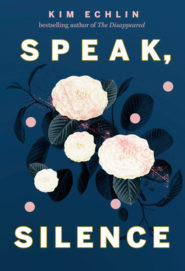 Kim Echlin: Yes. In both novels, characters live with grave historical events—in The Disappeared , a genocide, and in Speak, Silence, an international war crimes trial. The characters in these novels live in a world that is connected by international travel and communications. They have romantic relationships and friendships and work affiliations across cultures and languages and international borders. This is my world, and it is the world I want to reflect in my storytelling. In The Disappeared and in Speak, Silence, Canadian characters have relationships with men who are not Canadian. One begins in Montreal, the other in Paris, and characters explore other parts of the world as a result of these relationships—Phnom Penh, Sarajevo, Toronto, The Hague. Their powerful and complicated love affairs are lived against a backdrop of international turmoil.
Kim Echlin: Yes. In both novels, characters live with grave historical events—in The Disappeared , a genocide, and in Speak, Silence, an international war crimes trial. The characters in these novels live in a world that is connected by international travel and communications. They have romantic relationships and friendships and work affiliations across cultures and languages and international borders. This is my world, and it is the world I want to reflect in my storytelling. In The Disappeared and in Speak, Silence, Canadian characters have relationships with men who are not Canadian. One begins in Montreal, the other in Paris, and characters explore other parts of the world as a result of these relationships—Phnom Penh, Sarajevo, Toronto, The Hague. Their powerful and complicated love affairs are lived against a backdrop of international turmoil.
If we can bear to look, we know what is happening. We are electronically and visually connected as never before. My characters want to look. They want to act. They leave home to explore the world and they find love. They also find genocide and international trials and they do not turn away. Their consciousness compels them to look, and to act. The question I ask myself, in my writing and in my life, is, “What do we do once we know?”
AV: I want to mention also your previous novel, Under the Visible Life , which deals with the relationship of two multi-ethnic young women (Katherine Goodnow is Chinese and Canadian, while Mahsa Weaver is American and Afghani). Why did you choose to write about multi-ethnic characters?
KE: There are many reasons for this. From the point of view of the story, Katherine’s mother is prosecuted under the “Female Refuges Act” in Ontario (Canada) for having a relationship with a Chinese national working in Canada. Under this act, women could be charged with being “incorrigible.” This word was widely interpreted and applied to control women’s behaviors, everything from playing cards and prostitution to inter-racial relationships. This act was not removed from our legal system until 1969. Mahsa’s parents were persecuted by both state and religious law, and in the end were murdered for their relationship. Their marriage was transgressive because of their differences of religion and nationality. I wanted to explore law and custom in different parts of the world—in Canada, in Afghanistan and Pakistan—and to look at how law and institutionalized religion can limit love and human connection.
My city, Toronto, is diverse. Half of our citizens speak a language other than French or English at home. Our school system is set up to support students who are acquiring English and French at different ages. Important city information from our 311-telephone number is available in 180 languages. Naturally, in such a place, culture and ethnic origins mix. In my novels, characters of different origins and religions marry, have love affairs, create families and work together. Why? Because that is the world we live in.
Multicultural or pluralistic societies are not new. They have been with us since the beginning of recorded history. In ancient Mesopotamia, Akkadians and Sumerians mixed and their stories and documents were written on bilingual tablets, even though the two languages share no common roots. People have travelled, intermarried, traded, and lived together since 5,000 BCE. I think it is time to see that such interconnectedness is, in fact, the norm. Human cultures have never not mixed! I want to tell that story. Cultural connection is as ancient as the written word. Our consciousness can no longer deny this. Storytellers have always traded stories. Musicians, sculptors, painters have always shared their forms of expression.
AV: My kids, one of whom lives outside Ottawa and is married to a Canadian woman, are Asian-American, so these are issues that are near and dear to me. It is very disturbing to see anti-Asian violence here in the U.S., partly in response to COVID-19. What do you make of this, and is there similar anti-Asian violence in Canada?
KE: This is a question that is both literary and social, and it demonstrates our experience of imagination in the world. We, as a world community, have a very long way to go as we search—eternally and without hope that the work is ever finished—for equity across race, gender, sexual expression, and social class. I am sure you experience this in your own family as I do in mine. The violence we are witnessing around race in this moment is not only disturbing, it is criminal. We need to continue to use the principles of our democracies and our laws to defend everyone’s pursuit of self-definition. The Canadian Charter of Rights and Freedoms is an elegantly written document that not only articulates ideals of citizenship but is the basis of our laws meant to defend and explore the responsibilities and rights of all citizens.
In your question, I feel you reaching into that almost ineffable place where lived experience and lived imagination become one. This is the greatest moment in art. It is the moment in which consciousness shifts and we see the world fresh.
The first time I saw Georgia O’Keeffe’s series called “Sky Above Clouds” I suddenly perceived the world in space differently. O’Keeffe captures flying and looking down on clouds. In my writing, I want to capture the complicated relationships people have with each other and create a moment of seeing afresh. Language has the power to understand more expansively, from above the clouds. Beautiful language can take us into pain that we perhaps cannot otherwise tolerate, and also into fresh consciousness.
AV: What research did you do for Speak, Silence? Did you travel to Sarajevo and The Hague? If so, in what ways did this help with writing your novel?
KE: I worked on Speak, Silence for ten years. I watched this war on television. I was fascinated when the international court was established. I travelled to The Hague, saw the courts, interviewed prosecutors and case managers, visited the evidence vaults and library and courtrooms, saw the mechanisms behind the courts, the translation booths and visitor galleries and witness waiting rooms. I really loved meeting the people who were working in the courts. Several have become dear friends which does not always happen when one is researching. I admire their international optic, their dedication to this difficult work and the shared ideal of international justice. Without a doubt, this group of people are the best listeners I have ever met, and novelists are accustomed to listening deeply.
My visit to Bosnia-Herzegovina was transformative. I travelled with a former soldier and UN driver to parts of the region that are normally difficult to access. A friend from The Hague who is a case manager travelled with us and brought detailed files. Throughout our days I heard personal experiences of the war from someone who fought in it and statistics and evidence about the war from someone who has spent years in the courts studying it.
On my own, I visited the office for Women Victims of War, and met the NGO’s founder Bakira Hasecic, who is a survivor. With her I could feel the tragedy and violence of what happened to the women. I remember a moment with her in which I looked at a wall of files and suddenly grasped that the files were the testimonies of thousands of courageous women finding a voice to tell about their experience of war rape. In this moment the walls seemed to tremble, as if the voices were speaking aloud.
AV: Did you give Edina’s husband the name Ivo in reference to Ivo Andric, who wrote The Bridge on the Drina and who won the Nobel Prize in 1961? In what ways was Andric’s novel an influence in writing Speak, Silence?
KE: Ivan is a common name in the region and means “God is gracious or merciful.” Edina calls him both Ivan and the diminutive, Ivo. Theirs is a great love affair. They grew up together and their families loved each other, and they shared Muslim and Christian traditions with ease and hospitality and caring. I wanted the love between Edina and Ivan to be one in which readers experience the grace of the spirit, unimpeded by politics, religion, or war.
Ivo Andric is an important writer. I read a lot of his work and learned many traditional stories that most people who grow up in the region would know. On the night they meet, Kosmos tells Gota about the long history of conflicts in his home and some of Andric’s stories. She responds by telling him about her own culture’s history of violent colonialism and the principle of Terra Nullius. But neither of them has any idea of what the other is talking about. They just want to make love!
AV: The main character, Gota Dobson, goes to cover a film festival in Sarajevo during the Bosnian war. Is this scene referencing Susan Sontag, who made a famous trip to produce a play during the war?
KE: I’ll just sort out a few historical dates for clarity, because these events happened in an intense three-year period. Susan Sontag worked on a production of “Waiting for Godot” in 1993. She is much beloved in the community, and a square in Sarajevo in front of the National Theatre is named for her. The ICTY (International Criminal Tribunal for the former Yugoslavia) was established in 1993, and the indictment for the trial that I fictionalize in the book was in 1996. The first film festival in Sarajevo began in 1995.
Artists played a prominent role in this war, especially in Sarajevo. They kept radio broadcasts going during the siege, and there was underground theatre and music. They impatiently started the film festival which continues to this day. Artists and their work became the embodiment of memory, activism and future. In my book, Kosmos, the father of Gota’s child who she travels to Sarajevo to find, is the eternal artist trying to capture in his work the psyche of the place where he was born.
AV: In your novel, Zarko Dragic is the defendant who is indicted and stands trial at The Hauge for crimes against humanity. Your portrayal of Zarko depicts him as a person with no feelings of guilt or remorse. What can you tell us about these men and what they were really like?
KE: This is perhaps the most complicated question in this interview. In earlier drafts of my novel, I tried to work from Dragic’s point of view and I wrote his backstory based on research. I read first person perpetrator accounts and the testimonies of the defense carefully; but I have never felt able to inhabit this psychology.
The three common features that I understand about the individual rationale for war crimes are: the pressure to act as others do or be killed oneself; the conception of the enemy as “other” and therefore not-quite-human; and the idea that there are no rules of war, and therefore anything is permitted. But there is more to war crimes than this—power, individual conscience—and I cannot get to the bottom of all of it.
In my novel, I decided not to try to enter into Dragic’s inner perspective because I felt my attempts were inauthentic. Was my imaginative empathy too limited? I don’t know but I never felt that I was being true to Dragic. His inner voice escaped me. I decided to use language from the trial transcripts, physical descriptions from watching the video footage of the trial, and the women’s responses to him in court. This was as accurate as I could get.
AV: Centrally in your novel there is the silence of the Bosnian women, but there is also the silence between Gota and her daughter Biddy. Can you extrapolate on this allegory of silence and the need for communication?
KE: People live with all kinds of silences. In my novel, the women defendants must find the courage to testify in court, to break the silence in order to have their stories on the record.
The silences between mothers and daughters are periodic and change throughout our lives. In my story, Gota and her daughter are living their unique relationship through both silence and deep connectedness. Edina and her daughter Merima have also had to learn to deal with secrets they kept, out of both shame and the desire to protect each other. Merima did not want her mother to know what she went through and yet, her mother urged her to testify in court, to tell her story, which meant that she would have to know. This was excruciating.
Ultimately, grandmothers, mothers, and daughters had to accept knowing each other’s dread stories in order to change the law. I do not know how people live with these truths. But I do know, even in my own more ordinary life, that secrets destroy families. It is better to tell and work to bear the pain.
AV: On the first page Gota is watching TV about the Bosnian war and ruminates: “To watch people falling like broken clay pigeons in skeet practice. To change the channel. To live in the unattended moment. To be where I was not.” Later on, after the war, Mak takes Gota to Srebrenica to see the memorial and graves at Potocari. This is quite a journey that Gota makes, from distant to first-hand observer. Is this something that you can relate to in your own experience visiting places like Srebrenica and Foca?
KE: Yes. I have been able to travel and to see. In part this may be why I am drawn to certain themes. My parents created our family after World War II. They both came from insecurity and poverty and they were both curious about the world and they liked to read. My father had a chance for education on a veterans’ plan and he became a dentist. Even though my mother did war work calibrating airplane engines, there were no education plans for women and she continued her own work independently. Later, when my parents had a chance to travel, they took us with them. We watched them work together on outreach dental programs in remote areas, the Northwest Territories and northern Labrador. We were always expected to help when we could and to give back. This was woven into who we were as naturally as breath. I think this has had a great impact on how and why I travel. I want to see. I want to know.
AV: Grief is a vast wasteland. An example of this is where you state: “People were still collecting and identifying, bone by bone, arranging memory.” I cannot conceive how the Bosnian people afflicted by the war can live with the horrors every day. As mentioned above, “arranging memory” would seem to be a never-ending process.
KE: Yes, I think you’re right. We are becoming aware, since World War II, that war experience is held by generations. The children of survivors carry the pain and grief. If, as a world community, we were able to conceive of ourselves as interconnected, we would all share the pain and grief. We would be less likely to turn away from each other. This is why I believe that the international courts are very important. People from all over the world find new ways to work together in these courts, to create new laws and to attempt a shared culture of ideas around justice.
AV: After the war in which these women were raped, “Some men supported their wives and some refused to live with them after the war.” Have there been any post-war studies about these families regarding the various traumas that occurred?
KE: Yes, a great deal of work has been done in this area. There is more to do. The trial I describe in Speak, Silence is one in which rape was found to be a “crime against humanity,” which is important because this means that the crime is not an individual crime against an individual woman but a crime against all of us, and, in certain cases, a constitutive part of genocide. These are legal definitions and they are important to all of us because with them comes a shift of our consciousness about rape in war. Women’s bodies are no longer spoils of war. But the crime goes on, most recently in Myanmar with the Rohingya, in China with the Uyghurs, in the Democratic Republic of Congo. We have so much more to do.
AV: At many points in the novel you seem to imply there was a directive by the Serbian leaders to commit genocide. Is there proof there was such a directive and what are your thoughts about this?
KE: The Foca (Kunarac, et al.) case from which my story is drawn was the first international case to exclusively prosecute sexual violence. The legal intricacies are critically important and there is a high legal bar to prove its part in genocide.
I think of the evolution of our thought since Homer’s Iliad in which Agamemnon rallies his troops by saying, “Now, let no man hurry to sail for home, not yet / Not til he beds down with a faithful Trojan wife.” Now, several thousand years later, our collective imagination is shifting with the recently developed legal jurisprudence that sexual violence can form part of convictions of genocide, crimes against humanity, and war crimes.
Where is the heroic literature about this? Where is the story of a woman’s survival of war that is as beautiful as the Iliad ? The work of representing a woman’s experience of war in fiction requires deep listening.
AV: When you discuss the cross-examination by the defense attorney Mutaruga of Edina, you state: “Both acted within the law. Like a king sliding in and out of check with no clear resolution.” This is analogous to the chess matches that Edina and Gota play. What brought up this effective metaphor of comparing the trial to a chess game?
KE: Chess is very popular in Bosnia-Herzegovina. In Sarajevo, I watched a wonderful game of street chess using pieces that were four feet tall. The two players walked through their game, moving the pieces with two hands. It was really fun to watch. Spectators called out advice and insults and it was entertaining for everyone on the square.
In schools, it was an activity that boys and girls did together and Edina had real mastery. I wanted to show her as she was before the war, fun, competent, competitive. Gota isn’t a good player but they can play together, even over the telephone, and chat. Edina is more relaxed playing chess than in any other activity and she is able to tell Gota difficult things while they play.
I had a beautiful moment of synchronicity when I was researching chess for this novel. This often happens to me when my research goes well. I was looking for someone to help me design the games in the book. I wanted them to show Edina’s spirit and competitiveness and humor. I checked online for a chess master near me and the first person’s name that came up was a name that looked Bosnian. I told him that I was writing a novel and needed instruction and when we met he agreed to teach me and a few lessons later he told me that he himself had escaped from Sarajevo during the war. Suddenly the pieces I was studying on the board seemed alive in a fresh way.
AV: There is a brief scene where you mention the seventeenth century Dutch painter Judith Leyster and her painting “The Proposition,” where a man is offering money to a seamstress, ostensibly for sex. Leyster’s painting originally included her initials with a star, but a person named Franz Hals put his name over hers and it was not discovered and restored for three hundred years. This could be analogous to the Serbian military trying to cover up or deny their responsibility. What else can you tell us about seeing this painting and incorporating it into your novel?
KE: I like how closely you read. The fabric of images is part of the story and all art is interconnected, if we can bear to see. We know that in the Western tradition, women have been ‘silenced,’ not only in war, but domestically. One of the many forms of silencing is appropriation of voice and creativity, which is what happens to Leyster when Hals steals her painting. Gota sees this painting during the time that she is watching the court case and she wonders if the legal process is not in some way appropriating the women’s experiences. Gota becomes acutely aware of the age-old harassment of a woman in her own home and also that Leyster’s work itself was disappeared under a male artist’s name. It is unbearable—in that moment—and she leaves the gallery. Then it makes her more determined to tell the story she is witnessing.
AV: Even though the trial at The Hague occurred ten years ago, Speak, Silence is an important book telling the reader we cannot, just like the Serbians and Bosnians, forget what happened. Perhaps you can comment on this.
KE: I hope that Speak, Silence transcends the particular trial which took place in 2000. The International Criminal Court work is ongoing. Women’s domestic lives, sexuality, and political freedoms have been silenced for millennia. I have experienced this in my own work and mothering and domesticity. I hope that this novel helps communicate the emotion of emerging from silence, the feeling of finding one’s voice. I write from emotion and feeling. Reading fiction allows us to enter into a shared imaginative experience in which we can feel what the characters feel. I have always, since childhood, read for the expansiveness that using the imagination gives me. I hope that readers will experience this in my books.
Click here to purchase Speak, Silence
at your local independent bookstore


